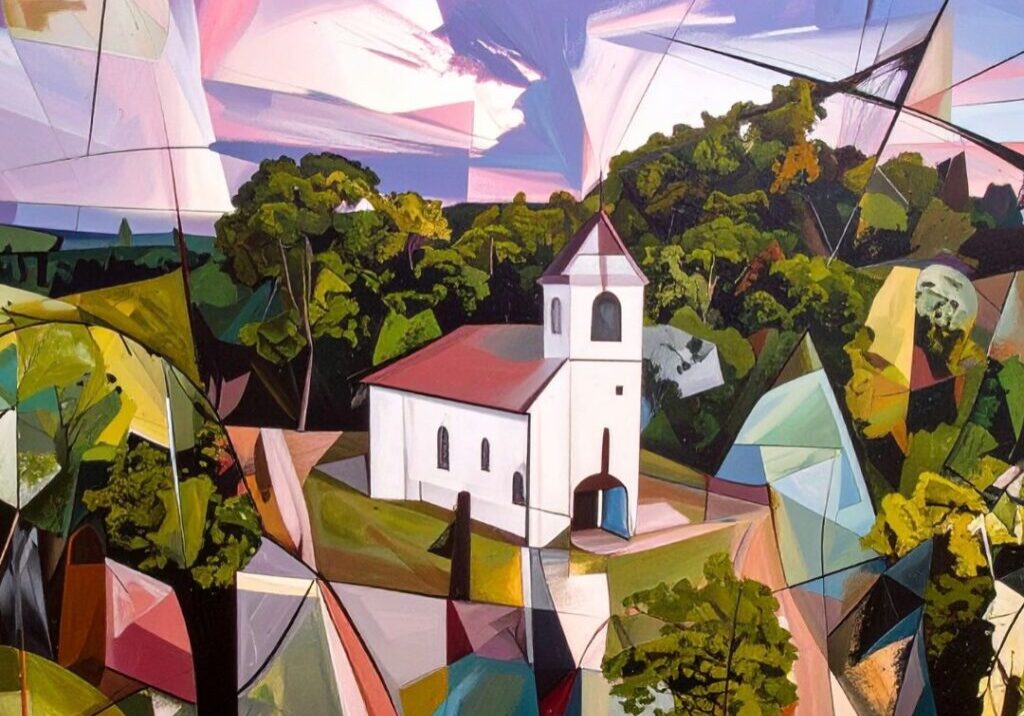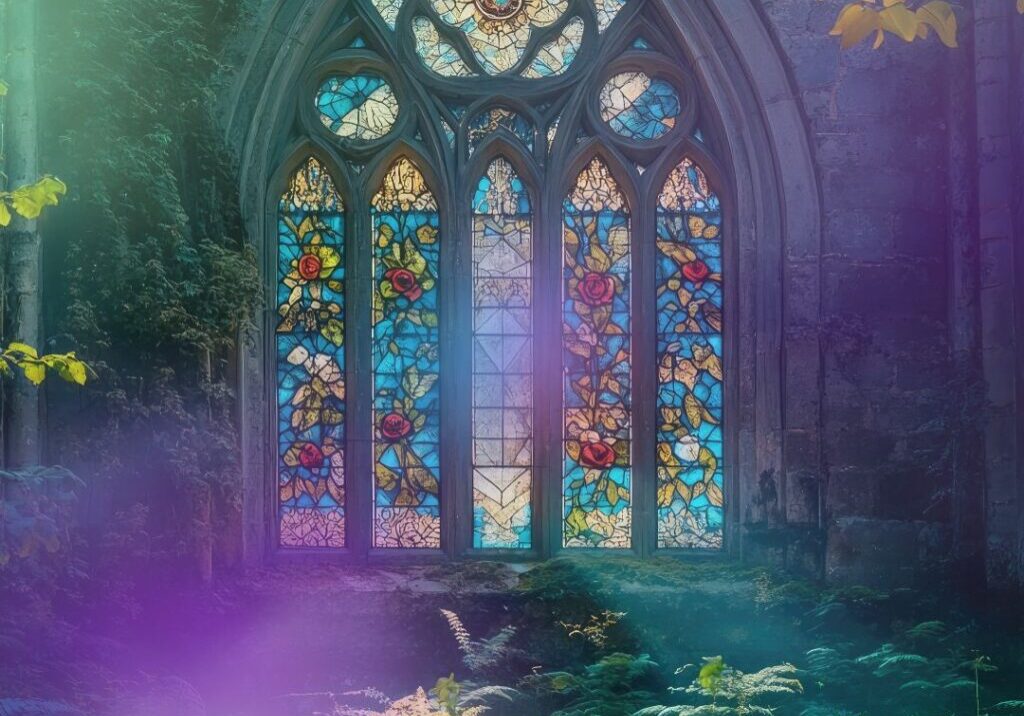“Birth of a Dancing Star” Book Review on NCR
Sr. Ilia Delio’s ‘Birth of a Dancing Star’ memoir is about discovering God
in the chaos of life
by Nichole Carrubba for NCR
Birth of a Dancing Star, Franciscan Sr. Ilia Delio’s memoir that tells of her journey into the heart of God, is first and foremost a love story.
“I was seized, so to speak, by the power of love in a way that defies logic or words,” she writes. Her passage into divine love suffuses this book.
Delio specializes in the area of science and religion. Her specific interests are the significance of evolution, physics and neuroscience within the context of theology.
Delio’s principle sources of inspiration are St. Bonaventure of Bagnoregio and Jesuit Fr. Pierre Teilhard de Chardin. These influences help her make the connections necessary to build a bridge between science and religion.
Born into an Italian-American family in New Jersey, Delio has a life rooted in Catholicism from the start. As she develops, we are taken on a spirited journey from her having a considerably wild adolescence, to flourishing as one of the few women in neuroscience and neurotoxicology in the country, to entering the world of monastic life, and then to creating a new religious community.
Many of us struggle to see how science and religion can work together, and for many years, Delio also compartmentalized the two. Her narrative explores the theme of learning to let go of a static worldview and discover God in the chaos of life rather than seeing God as a destination. “God gives us the freedom to shape our lives, and the most authentic life can only be found in the freedom of letting go, over and over again,” she writes. Growing closer to God happens when one’s consciousness is given the freedom to evolve.
The theme of letting go is essential for Delio because she believes that God is infused in evolution, and Christian life exists within an ongoing learning process about the meaning of existence and expansion of consciousness. The work of Teilhard revealed to her that science and religion were not opposing forces; rather, they inform one another. Science and religion are, “two lenses seeing the world, two ways of knowing one world.” Humans are the universe made conscious.
While science is one of Delio’s passions, religious life is her vocation. Nevertheless, she provides a very honest critique of religious life today. When she left the Carmelites to join the Franciscans, she noticed a repetition of patterns that were contrary to her call. She found beauty in the rhythm of stillness and prayer within both orders, but also found community life to be “punctuated by the human ego.”
While the outside world considers a religious community an ideal image of Christian life, in her experience, even well-intended religious communities often “grinded vocations into psychological models of depression.” Delio struggled deeply with this but came to realize that religious life has been static for quite some time. It became clear to her that it was not a question about her vocation, but a call to live her religious life in a way that brings a spirit of newness. Delio came to understand that, like everything in creation, religious life must also evolve with the deepening of consciousness.
As a result, Delio, still unquestionably aware that her life belongs to God, has taken on the task of creating her own non-canonical Franciscan order with a friend and sister from another religious order. The two have started a new community that they say is less about obedience than it is about poverty. Delio shares, “I have come to realize that the road to God does not lie in stability but in creativity, and the forms of religious life that can renew creative centers, both personally and collectively, will be the communities that will grow in the future.”
So what does it mean to Delio for religion to continue to evolve, especially in a world inevitably becoming more immersed in technology? I think for many, Delio’s ideas here may feel perplexing, but I would encourage the reader to stay open. She refers to herself as a “Cyborg Christian,” explaining that the Cyborg is “the idea that technology is not a tool but an extension of our nature.” This does not mean that technology has a life of its own, but that technology has the power to “form relationships and relationships form persons.” For instance, for many Gen Zers (those born between 1995 and 2015) who use video games and social media, differences of gender, race and religion are transcended by shared interests. Delio makes clear that she is aware of the disadvantages of the internet, but she bases her ideas on her studies of how the brain evolves as well as her own experiences in the classroom with younger generations.
The culmination of Delio’s years of pondering, struggling and becoming leads her into the core reality of love as a way to evolve in consciousness toward God. In order for us to move forward, she encourages a practice of accessing the love deep within ourselves. Delio does not limit her encouragement to individuals, but the whole Catholic Church as well.
“A church grounded in the core reality of God’s love must be a church living from the center of that love, which is why the church can survive into the future only if it opens wide its doors to all those it currently excludes: women, laity, gay, non-binary, transgendered, divorced, and remarried,” she writes. Love does not fixate on doctrines and canon laws, but is “patient and kind,” as St. Paul wrote.
Delio finds freedom in experiencing God in the “now” and allows those moments to guide her path forward into her own heart and into the heart of God. She invites readers to join her on the journey, which she captures in beautiful language that is imbued with a love of God and in a voice that is quintessentially Catholic.
Notes:
Nichole Carrubba received her master of theological studies degree from the Franciscan School of Theology in Berkeley, California, where she specialized in Franciscan spirituality.
Permission granted by National Catholic Reporter. Original article available here.
 You can pre-order “Birth of a Dancing Star” here
You can pre-order “Birth of a Dancing Star” here“I have spent a lifetime entangled with the mystery of God, constantly in the throes of Augustine’s question, ‘What is it I love when I love You, my God?’ I liken my story to the biblical story of Jonah and the whale; no matter how much I try to run away, God is constantly searching for me.”
In this heartfelt and spirited memoir, bestselling author Ilia Delio, one of the most exciting thinkers on the frontier between religion and science, recounts a journey that took her from scientist to theologian, and from traditional cloistered nun to a leading proponent of evolution and “cyborg life.”
 View print-friendly version
View print-friendly version
1 Comments
Related Posts

Beyond Violence: The Path Through Grief to Spiritual Evolution
The recent shooting at Annunciation School in Minneapolis continues to haunt our collective consciousness. While the news cycle moves forward—with yet more senseless acts of political violence—the Annunication tragedy leaves…


I am so looking forward to your new book. It is freeing and challenging to read this article. Change is so often hard due to the degree of complexity involved, yet it’s refreshing and encouraging to see your graced faith and willingness to lead